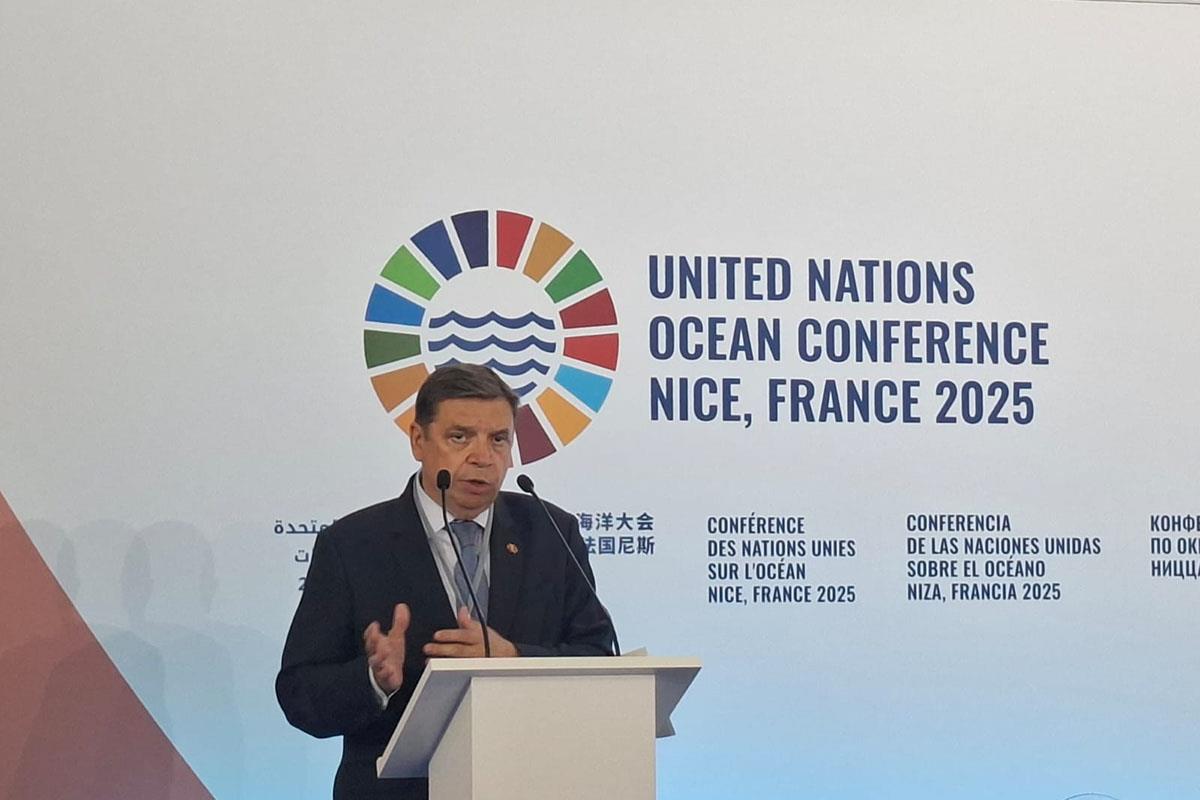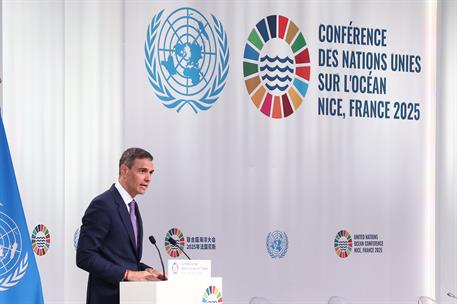Third UN Oceans Conference in Nice
Luis Planas: "Marine reserves of fishing interest, an effective management model"
News - 2025.6.11
 The Minister for Agriculture, Fisheries and Food, Luis Planas, during his participation in the event
The Minister for Agriculture, Fisheries and Food, Luis Planas, during his participation in the event
The Agriculture Minister also pointed out that this form of protection is not very common in other countries and that, after almost 40 years of experience, the Spanish marine reserves of fishing interest are a clear success story of a model that makes the preservation of marine resources and responsible fishing compatible. "It is a successful model of collaborative management that strengthens the social fabric of coastal communities," he said.
Planas took part in a fringe event organised by the Ministry of Agriculture, Fisheries and Food in the framework of the Third United Nations Ocean Conference (UNOC3), which is being held in the French city of Nice.
During his speech, he announced a new measure to protect the ecosystem of the Cabliers coral reefs in the Alboran Sea (Almeria) by banning commercial and recreational fishing. "The aim is to preserve the ecosystem and essential habitats that serve as refuges for fry and broodstock of species of commercial interest," he explained.
The minister stressed that "this management model is mature and consolidated and demonstrates that sustainably managed fisheries are compatible with the preservation of resources." He also highlighted the role of marine reserves as socio-economic drivers: "The Marine Fishing Interest Reserves are the result of requests from the small-scale fishing sector and backed up by scientific studies."
Spain has been a pioneer in the creation of marine reserves, with the first one in Tabarca Island (Alicante) in 1986. The network of marine reserves currently covers 12 sites in the Mediterranean and the Canary Islands, with a total of 105,000 hectares, including 10% under strict protection.
A commitment to small-scale fisheries and sustainable management
The minister also participated in one of the panels at the UN conference to discuss small-scale fisheries and sustainable management. In his speech, Planas highlighted Spain's profound relationship with the sea and the key role of small-scale fishing in the local economy, culture and gastronomy of coastal regions.
He also insisted on the need to guarantee generational replacement and the importance of making the role of women in small-scale fishing more visible. Praise was also given to the sector's advances in digitisation and the use of more sustainable techniques, such as flying gates and more selective nets, which reduce environmental impact and contribute to the conservation of marine resources.
He reiterated Spain's commitment to sustainability, the fight against overexploitation and illegal fishing, and the strengthening of international cooperation and regional fisheries management organisations.
During the afternoon and in the framework of the conference, Luis Planas will also speak at a side event organised by France on the role of regional fisheries bodies, "essential instruments for achieving sustainable management of marine resources", according to Planas.
Spain is a firm advocate of these figures, in which it actively participates, because "a multilateral approach, based on scientific data, transparency and the constant improvement of monitoring, control and surveillance mechanisms" is also necessary in the sea." According to Planas, all countries "must move together towards stronger, more coordinated and effective ocean governance."
The minister will close his agenda in Nice this afternoon with a bilateral meeting with the French Minister for Ecological Transition, Biodiversity, Forests, Sea and Fisheries, Agnès Pannier.
Non official translation





